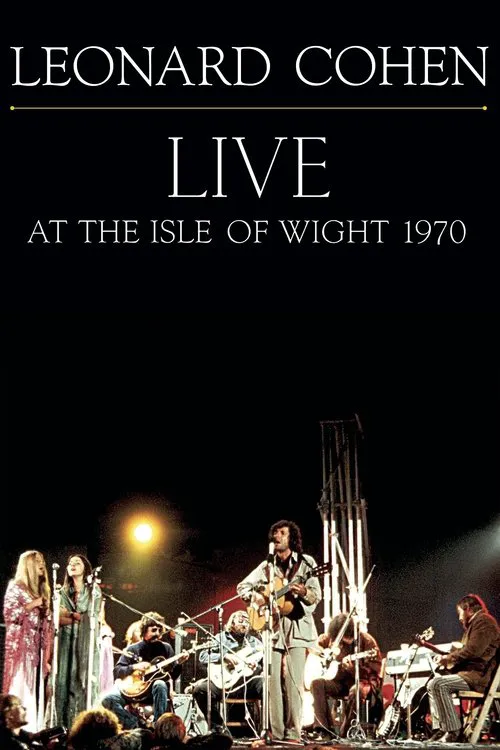Leonard Cohen: Live at the Isle of Wight 1970

あらすじ
On a sweltering late summer evening in 1970, the Isle of Wight, a small island off the coast of England, played host to an eclectic gathering of artists, musicians, and free spirits. The event, one of the largest concerts ever held in Europe, was a celebration of music, art, and individuality, attracting a crowd of over 600,000 people. Amidst this sea of revelers, a young Canadian singer-songwriter, poet, and novelist named Leonard Cohen stepped onto the stage, armed with nothing but his voice, guitar, and the lyrics that had captured the hearts of so many. It was to be a performance for the ages, one that would cement Cohen's status as a poet laureate of his generation and leave an indelible mark on the music world. Leonard Cohen had always been a force of nature, a wordsmith and a weaver of sonic tapestries that spoke to the human condition in all its complexities. Born in Montreal, Canada, Cohen had grown up in a Jewish family, surrounded by the sounds of klezmer music and the poetry of Baudelaire. These early influences had shaped him into a writer, poet, and musician of remarkable depth and nuance. His music, a fusion of folk, rock, and poetry, had become a sensation in Canada, and his first album, Songs of Leonard Cohen, released in 1967, had already made a significant impact. But it was not until 1970, during the height of the counterculture movement, that Cohen's star truly rose. His second album, Songs from a Room, a stark and introspective work, had been released to critical acclaim, and he was beginning to gain a reputation as a performer of unparalleled intensity and focus. His music, a poignant exploration of love, loss, and redemption, resonated deeply with the young people of the 1960s, who were seeking authenticity and connection in a world torn apart by conflict and social change. As Cohen took the stage on the Isle of Wight, the energy in the air was palpable. The crowd, a sea of flower power, tie-dye, and patchouli-scented idealism, was electric, waiting for the Canadian singer-songwriter to weave his magic. And Cohen, ever the showman, was ready to deliver. With his distinctive baritone voice, he began to play his guitar, strumming the opening chords of "Sundown." The crowd, entranced by his words and music, was transported to a world of mystery and wonder. Throughout the performance, Cohen's voice soared, dipping and rising with the emotional ebb and flow of the songs. His lyrics, a fusion of poetry and storytelling, painted vivid pictures of love, loss, and redemption, speaking directly to the hearts of his audience. As he sang, he seemed to channel the very essence of the human experience, confronting the darker corners of existence with a courage and vulnerability that was both compelling and moving. The performance was a revelation, a masterclass in songwriting and performance that left the crowd awestruck. Cohen's voice, a instrument of incredible range and expressiveness, conveyed the subtleties and nuances of his lyrics, drawing the audience into a world of intimacy and depth. His music, a unique fusion of folk, rock, and poetry, was at once timeless and modern, speaking to the universal concerns of the human heart. As the night wore on, Cohen continued to perform, weaving a sonic tapestry that was both personal and universal. His voice, a instrument of unparalleled power and control, soared and dipped with the emotional ebb and flow of the songs, conjuring images of love, loss, and redemption that seemed to touch the very soul. The crowd, entranced by his performance, sang along to every word, drawn into a world of wonder and enchantment. In the end, Leonard Cohen's performance on the Isle of Wight was a triumph, a testament to the transformative power of music and art. It was a reminder that, even in the darkest of times, there is always hope, always a sense of connection and community to be found in the shared experience of music and poetry. And as Cohen left the stage, his performance still echoing through the minds and hearts of his audience, he knew that he had created something truly special – a work of art that would be remembered for generations to come.
レビュー
おすすめ



